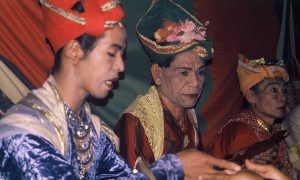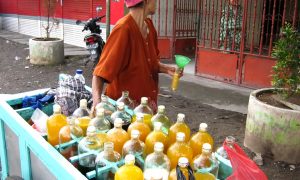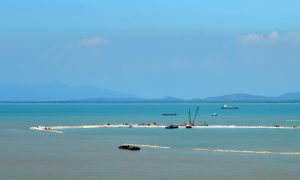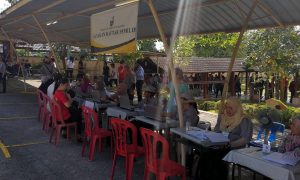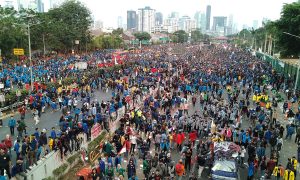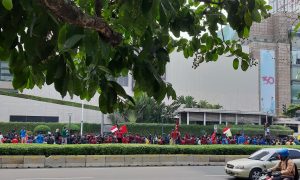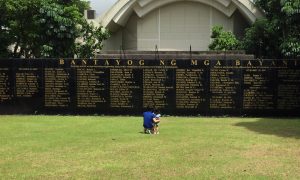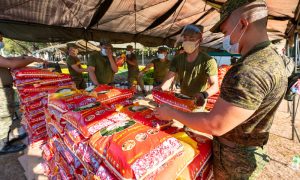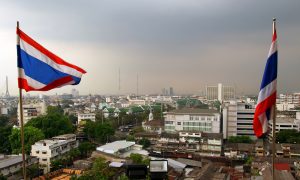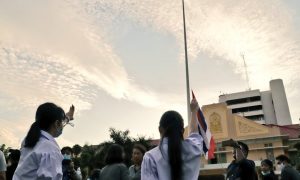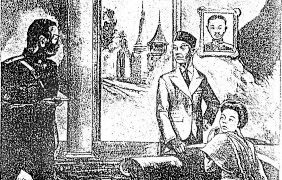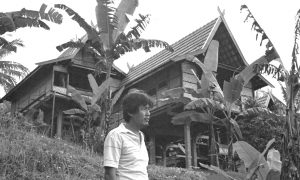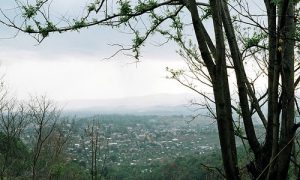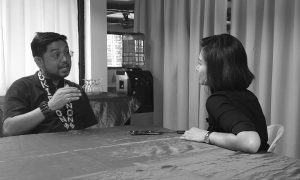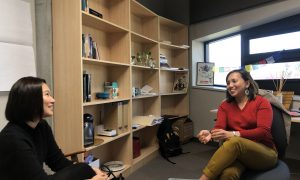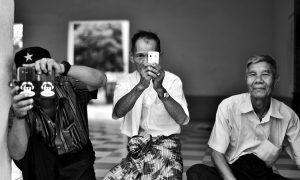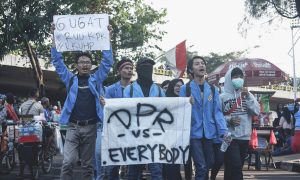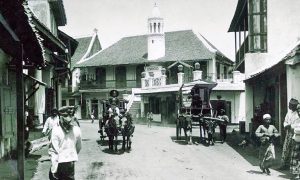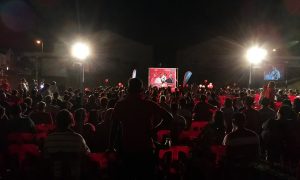Funded by the ANU Gender Institute, NM's latest project offers workshops in developing a short video using readily available devices. Get your EOI in before 12 Dec.
Revolution from the kitchen: women and ecological responses to COVID-19
The kitchen has become a centre of social solidarity from which women are making invaluable contributions to the COVID-response.
National harmony: race, politics and campaigning in Malaysia
A new report analyses debates around social cohesion and a failed proposal for a National Harmony Commission in Malaysia in light of Pakatan Harapan's collapse
Creating land in the sea: the quest for greater state autonomy in Malaysia
Land reclamation initiatives seek to side-step national regimes which had previously constrained the autonomy of local governments.
Alternative Visions for Malaysia requires combating political clientelism
Ross Tapsell reviews a new book on Malaysian politics ahead of the ANU Malaysia Update 2020 “Alternative Visions for Malaysia”.
Indonesian protests point to old patterns
The return of student protests and the government’s response have are reminiscent of the era of authoritarian rule
Indonesia’s omnibus law is a bust for human rights
Trade unions and human rights groups believe the law is in fact no more than an attempt by the nation’s oligarchs to roll back political reform.
Remembering martial law in the Philippines: Education and media
Stay at home orders are opening up opportunities for critical thinking and teaching on history.
Surviving or thriving? COVID-19 and violent non-state actors in the Southern Philippines
Data analysis strongly suggests correlations between COVID-19 and the commission of political violence, but the causal mechanisms driving these trends are less clear.
Constitutional amendment in Thailand needs consensus first
Will the current push for amendments lead to a fairer and more participatory constitution?
Lèse-majesté’s new face hides old tricks
Modern techniques to block online criticism of Thailand's monarchy are paired with the familiar stirring of royalist-nationalist sentiment.
Mayors are keeping the Philippines afloat as Duterte’s COVID-19 response flails
In the Philippines, local governments are stepping up to cover gaps in national public health and welfare infrastructure.
‘That damned elusive pimpernel: Tan Malaka and the Patjar Merah stories
What exactly was the relationship between the real Tan Malaka and his fictional alter ego?
Internet providers are helping the Thai government track down dissidents
Thai laws oblige ISPs to relinquish identifying data to authorities during criminal investigations.
Vale Arief Budiman (1941-2020): liberated intellectual in authoritarian times
Even years later, if I told a Jakarta taxi driver I used to teach at Satya Wacana, their face would light up: “Arief Budiman, very good!”
Philippines beyond clichés season 2 # 5: participatory governance is a hoax
Dr Teresa Melgar draws on her comparative research in Brazil and the Philippines to help us understand the potential of engaging citizens fully in political processes.
Myanmar military increases coronavirus risk and threatens peace in ethnic minority communities
Military interventions are preventing essential medical aid and health workers from reaching people.
Philippines beyond clichés series 2 #3: ‘Tambays’ are lazy
'Tambay' are often victims of structural impediments to moving forward in life, says Professor Clarence Batan.
Philippines beyond clichés series 2 #2: The Philippines is a sexist society
Sexism in the Philippines is about "multiple overlapping issues of inequality based on class, religion, sexuality, ethnicity, and also geographic locations" as Dr Maria Tanyag discusses with Nicole Curato.
Reflections on the future of Myanmar Studies
Where to now for Myanmar Studies? New Mandala co-founder Nicholas Farrelly reflects on a rapidly changing field.
Progress in democratic culture is being stifled in Indonesia
While community level developments show a rise in engagement with democratic culture, the government appears to extending the reach of repressive legislations and ignore hate speech and intolerance.
Nick Cheesman in conversation with Sumit K. Mandal on “Becoming Arab”
A discussion on the power and limits of colonial racial categories; Hadramis, Sayyids and Sharifas in maritime Southeast Asia; modernity and cultural hybridity; the descendants of Arabs in the Malay world today;
Unpacking the idea of Malaysia’s ‘deep state’
In Malaysia, the ‘deep state’ is a shorthand for the perceived institutional inertia exerted by the 1.6 million strong civil service. But is it real?
Another editorial shift–hello, goodbye!
It's time for an editorial change again! Read on to find messages from the outgoing and incoming editors, Becky Gidley and Elly Kent.
 Facebook
Facebook  Twitter
Twitter  Soundcloud
Soundcloud  Youtube
Youtube  Rss
Rss 